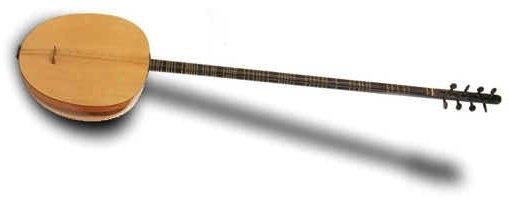Rana Dasgupta is a British novelist living in Delhi. His first novel, Tokyo Cancelled (2005), a 13-part story cycle in the tradition of Chaucer and Boccaccio, was translated into eight languages and shortlisted for the John Llewellyn Rhys Prize. His follow-up, Solo, the story of the life and dreams of a blind 100-year-old Bulgarian chemist, won the 2010 Commonwealth Writers’ Prize. To mark the South Asian Literature Festival which continues in London until 31 October, we published this exclusive micro-non-fiction which charmingly illustrates through music the long history of cultural cross-fertilisation between East and West.
Mesut Cemil was the son of Cemil Bey, the greatest tanbur player who ever lived. During his father's lifetime, Mesut Cemil did not presume to rival him; he played only other instruments and left the tanbur alone.
But when Cemil Bey died, his son devoted himself entirely to that instrument. He practised and improvised, and developed a new style of tanbur music, sparer and less ornate than his father’s.
He began to imagine a new richness, not of ornament, but of the mix of voices. He wanted to experiment with voices in the bass, which had no precedent in Turkish classical music, and he decided he needed to learn from another tradition. So in 1921 he went to Berlin to study cello with Hugo Becker.
Famous for his performances of the Bach cello suites, Becker was the cellist in Artur Schnabel’s piano trio. He was the foremost cello teacher of his day.
Becker taught cello to Mesut Cemil for three years. When Mesut Cemil felt he had understood how the bass worked in Western music, he returned to Istanbul to resume his experiments with the tanbur.
© Rana Dasgupta 2010
- Find more of Rana Dasgupta’s writings – on music, food, smoking, cinema, empire, paranoia and children’s toys
- Find Rana Dasgupta on Amazon
- Find Tokyo Cancelled and Solo on Amazon
- For more on the tanbur, visit the Tanbur Society website



Add comment